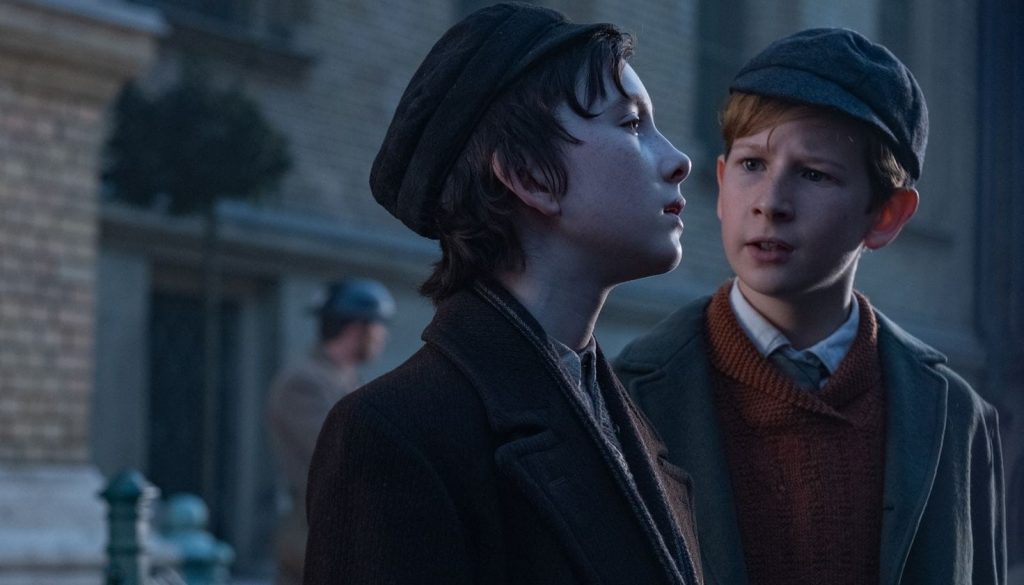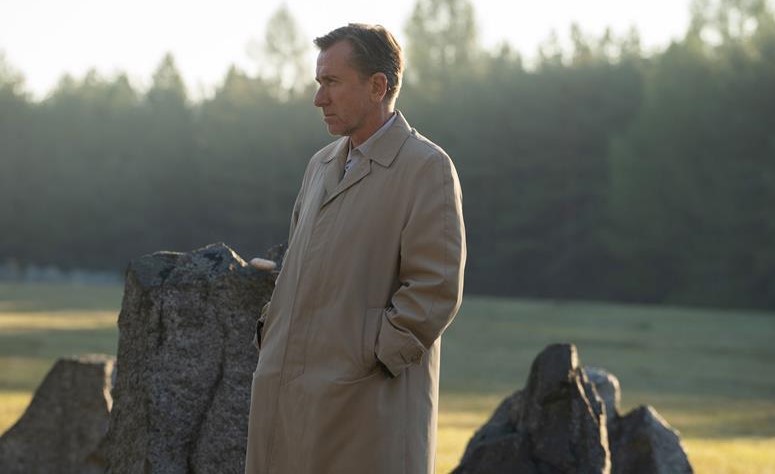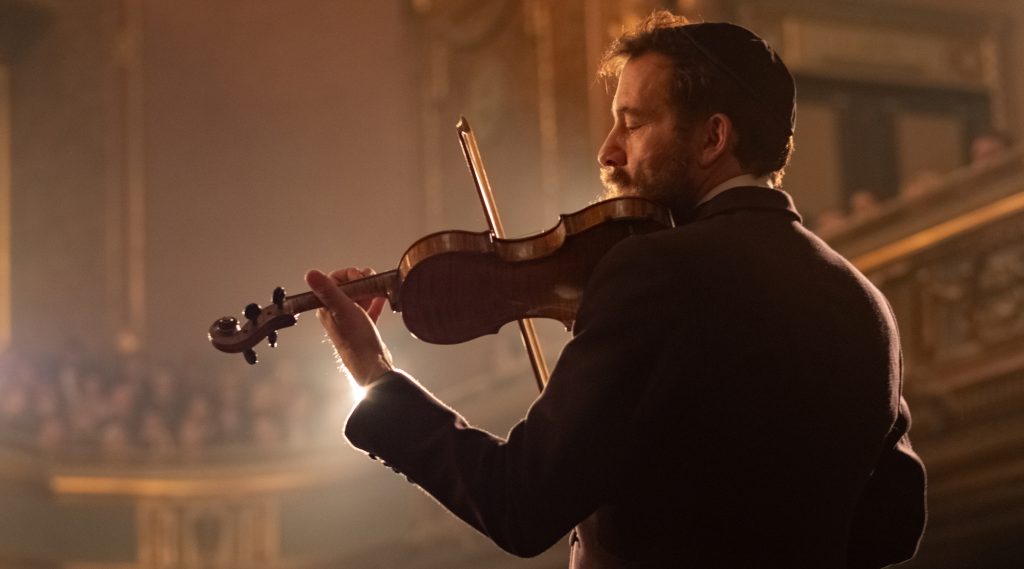
Life can take us all on different paths, but some unexpected separations lead to a lack of closure, unanswered questions and longstanding hurt feelings. The Song of Names is a historical drama that tells one such story, spanning several decades and crossing continents as one driven man attempts to find out what happened to his childhood best friend who vanished without a trace.

The frustrated figure is Martin (Tim Roth), who has never gotten over the sudden disappearance of Dovidl (Clive Owen), a Polish migrant to London and musical prodigy taken in by the boy’s father during the outbreak of World War II. The movie cuts back and forth between different time periods, chronicling the pair’s tempestuous and competitive relationship. Dovidl is a brilliant violinist and an arrogant one at that, causing much tension between the youngsters. However, a positive friendship slowly forms, only to be shattered without warning. Many years later, when new information is revealed to Martin that may lead him to Dovidl, he follows the trail in the hopes of learning what happened.
This movie veers from the familiar Hollywood formula in a variety of ways. Martin’s relentlessness in pursuing Dovidl isn’t for a harmonious reunion and need to catch up. It’s to confront and chastise his friend for his actions, which broke the heart of his own father who acted as benefactor for the youngster’s musical development. As mentioned, the violinist is hardly a swell guy either; many of his decisions in life are selfish and made without the consideration of others.

In general, the motivations of the characters are left open to interpretation. Even the father’s reasons for taking Dovidl in are uncertain and suggest that it may have been as much to do with profit and prestige as helping the boy out. The gray aspects surrounding these characters might be difficult for audiences to relate to and empathize with and the movie doesn’t feel compelled to spell anything out. However, the technique does add dimensions and complexity to these people. Their story wouldn’t be nearly as interesting if they followed traditional arcs.
Tim Roth effectively delivers Martin’s inner turmoil and exasperation, searching for answers to questions that have been plaguing him his whole life. However, Owen seems miscast as Dovidl. He’s perfectly acceptable in the role, but looks more the part of a Hollywood star in exaggerated hair and beard appliances instead of a reclusive and tortured soul. It’s admittedly tough to buy into the adult version of the character.

Truthfully, one of the biggest benefits of the film are the exceptionally good performances by the juvenile cast members. More than half of the picture follows the leads as children and teenagers. There’s a lot of heavy drama and subtext, and the young actors portraying Dovidl (Luke Doyle and Jonah Hauer-King) and Martin (Misha Handley and Gerran Howell) are better than one would expect. In fact, these sections of the picture may be its most effective.
Canadian director Francois Gerard knows music, and many of his films feature it prominently (two of which, Thirty Two Short Films About Glenn Gould and The Red Violin, are considered cinematic greats in his homeland). Just like the music in his other films, the violin pieces and title track are very powerful in their performance and execution, helping things significantly.

Admittedly, bits and pieces of the picture don’t work and this effort doesn’t match the filmmaker’s best films. Yet even with its flaws, the movie does keeps one’s interest with its unusual characters and, at times, unpredictable narrative. Overall, The Song of Names may have its share of miscues, but it still provides a fine melody worth hearing.


